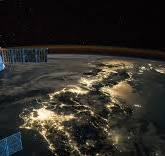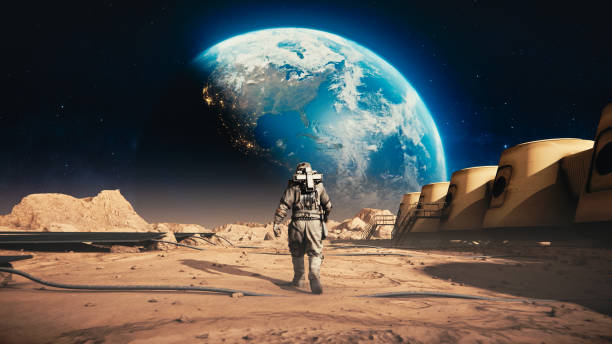
Space tourism is no longer just a sci-fi fantasy. As commercial spaceflights become a reality, they promise to radically alter how we see our planet and our place in the universe.
A New Frontier: The Dawn of Space Tourism
For centuries, space has been a domain reserved for astronauts, researchers, and governments. But in recent years, a new era has begun to unfold—the era of space tourism. Thanks to pioneers like SpaceX, Blue Origin, and Virgin Galactic, what was once the stuff of dreams is becoming a reality for everyday people. Space tourism offers ordinary citizens the chance to leave Earth’s atmosphere and venture into the vast expanse of space. But beyond just a thrilling adventure, this new frontier has the potential to transform how we perceive our planet and humanity’s place within the cosmos.
In the past, space exploration was synonymous with exploration for knowledge, scientific discovery, and national prestige. Today, it represents something much more personal. As the number of space tourists steadily rises, so does the opportunity to redefine humanity’s perspective on Earth. What does it mean for us to leave our home planet and look at it from the outside, as we observe the fragile blue sphere that sustains life in the midst of an infinite black universe?
Space tourism could do more than simply offer a thrilling experience—it could become a powerful catalyst for change, shifting our perspective on life, environmental issues, and the very nature of human existence.
A New Perspective: The Overview Effect
1. The Earth Seen from Space
One of the most profound experiences for astronauts, particularly those who have ventured beyond Earth’s orbit, is the realization of just how small and fragile our planet is. This transformative moment is known as the “Overview Effect.” It occurs when a person gazes back at Earth from space and sees it not as a collection of countries or continents, but as a single, fragile blue planet floating in the vast emptiness of space.
As space tourism grows, this experience will no longer be limited to astronauts. For a growing number of civilians, the opportunity to witness the Overview Effect will be within reach. When people see Earth from space, something profound happens. They begin to understand the interconnectedness of all life, the fragility of our environment, and the need for greater environmental stewardship. In many ways, space tourism could become an eye-opening experience that reshapes our collective consciousness.

The Overview Effect has already been described by astronauts as a life-changing event. It invokes a sense of unity, prompting people to view Earth from a global perspective rather than one divided by borders, politics, or nationality. For those fortunate enough to experience this shift in perspective, the implications are far-reaching.
2. Environmental Awakening
Seeing Earth from space has the potential to catalyze a broader environmental movement. As space tourists float above the Earth, they may witness firsthand the vulnerability of our planet—its atmosphere, oceans, and ecosystems all interwoven and delicate. This new view could inspire a wave of environmental advocacy and lead to increased support for policies aimed at combating climate change, protecting biodiversity, and preserving natural resources.
In addition, the ability to observe Earth from space might push individuals to adopt more sustainable behaviors. Just as a person who has witnessed the fragility of the environment may be more inclined to take action, space tourists could return to Earth with a heightened sense of responsibility toward the planet.
The Potential for Global Unity
1. A Universal Experience
Imagine millions of people from every corner of the world embarking on a journey into space. As the accessibility of space tourism expands, the experience could become a shared, universal event that transcends cultural, social, and political boundaries. Space travel could unite humanity in ways that have never been possible before.
The sheer novelty of space tourism could bring people together with a common sense of wonder, awe, and curiosity. It would offer an opportunity to focus on shared human experiences rather than differences. Space tourism has the potential to create a new global community, united not by shared geography or language, but by the understanding that we all inhabit the same planet—one small, vulnerable world in an endless universe.
In addition, the rise of space tourism could inspire collaboration between countries, fostering peaceful international relationships and creating opportunities for cross-border partnerships in space exploration and sustainability initiatives.

2. Inspiring Future Generations
As more people experience space tourism, it will ignite the imagination of younger generations. Children who grow up hearing about ordinary people traveling to space may be inspired to dream big and pursue careers in science, technology, engineering, and mathematics (STEM). Space tourism could give rise to a new generation of explorers and innovators, ready to take on the challenges of the future.
The growth of space tourism will also encourage investment in education, research, and technological advancement. To make space travel more accessible and sustainable, the global community will need to prioritize innovation in areas like space propulsion, environmental protection, and sustainable resource management. The result could be a renewed commitment to scientific advancement and exploration, driving humanity forward into an era of unprecedented discovery.
The Challenges and Ethical Considerations
1. The Environmental Cost of Space Travel
While space tourism could have many positive effects, there are also significant environmental considerations to address. Launching rockets into space produces greenhouse gases and contributes to atmospheric pollution. As space tourism becomes more prevalent, it will be important to develop sustainable and eco-friendly technologies to mitigate the environmental impact.
Efforts are already underway to develop more sustainable rocket technologies. Companies like SpaceX are working on reusable rockets, which could significantly reduce the environmental footprint of space travel. However, as demand for space tourism grows, finding environmentally responsible solutions will be critical to ensuring that the benefits of space tourism do not come at the cost of our planet’s future.
2. Exclusivity and Inequality
Another challenge of space tourism is its exclusivity. As it stands, space tourism is an expensive venture, accessible only to the wealthy elite. This raises questions about inequality and accessibility. If space tourism is reserved for a small segment of society, it could create new divisions rather than fostering unity.
However, as technology advances and costs decrease, space tourism could eventually become more accessible to a broader demographic. This would allow a more diverse group of people to experience space travel, ensuring that the transformative effects of space tourism are felt across all walks of life.
Conclusion: A New Era for Humanity
Space tourism holds the potential to revolutionize the way we perceive Earth and our role in the universe. From fostering a sense of global unity to inspiring environmental consciousness, the opportunities for transformation are vast. As more people embark on journeys into space, they will experience firsthand the fragility of our planet, the interconnectedness of life, and the urgency of preserving our shared home.
Space tourism is more than just a new form of entertainment; it is a catalyst for change. It could inspire new environmental movements, encourage global cooperation, and fuel the dreams of future generations. While challenges remain, the continued growth of space tourism could ultimately spark a paradigm shift—one that changes not just how we view Earth, but how we treat it.

Q&A: The Impact of Space Tourism on Humanity’s Perception of Earth
Q: How will space tourism change our perception of Earth?
A: Space tourism offers individuals the chance to witness the Earth from space, encouraging a shift in perspective. People will see the planet as a small, interconnected, and fragile sphere, fostering greater environmental awareness and unity.
Q: What is the Overview Effect, and how does it affect space tourists?
A: The Overview Effect is the cognitive shift that occurs when astronauts view Earth from space. It leads to a deep sense of interconnectedness and environmental consciousness, which space tourists are likely to experience as well.
Q: Can space tourism inspire global unity?
A: Yes, space tourism has the potential to unite people from different cultures and backgrounds by offering a shared, awe-inspiring experience. It could foster a global sense of community
and highlight our shared responsibility for the planet.
Q: What are the environmental concerns associated with space tourism?
A: Space tourism involves rocket launches that contribute to atmospheric pollution and greenhouse gas emissions. To mitigate these effects, there is a need for sustainable technologies, such as reusable rockets and eco-friendly space travel solutions.
Q: How can space tourism inspire future generations?
A: By making space travel more accessible, space tourism will inspire young people to pursue careers in science, technology, and engineering, driving innovation and exploration for years to come.